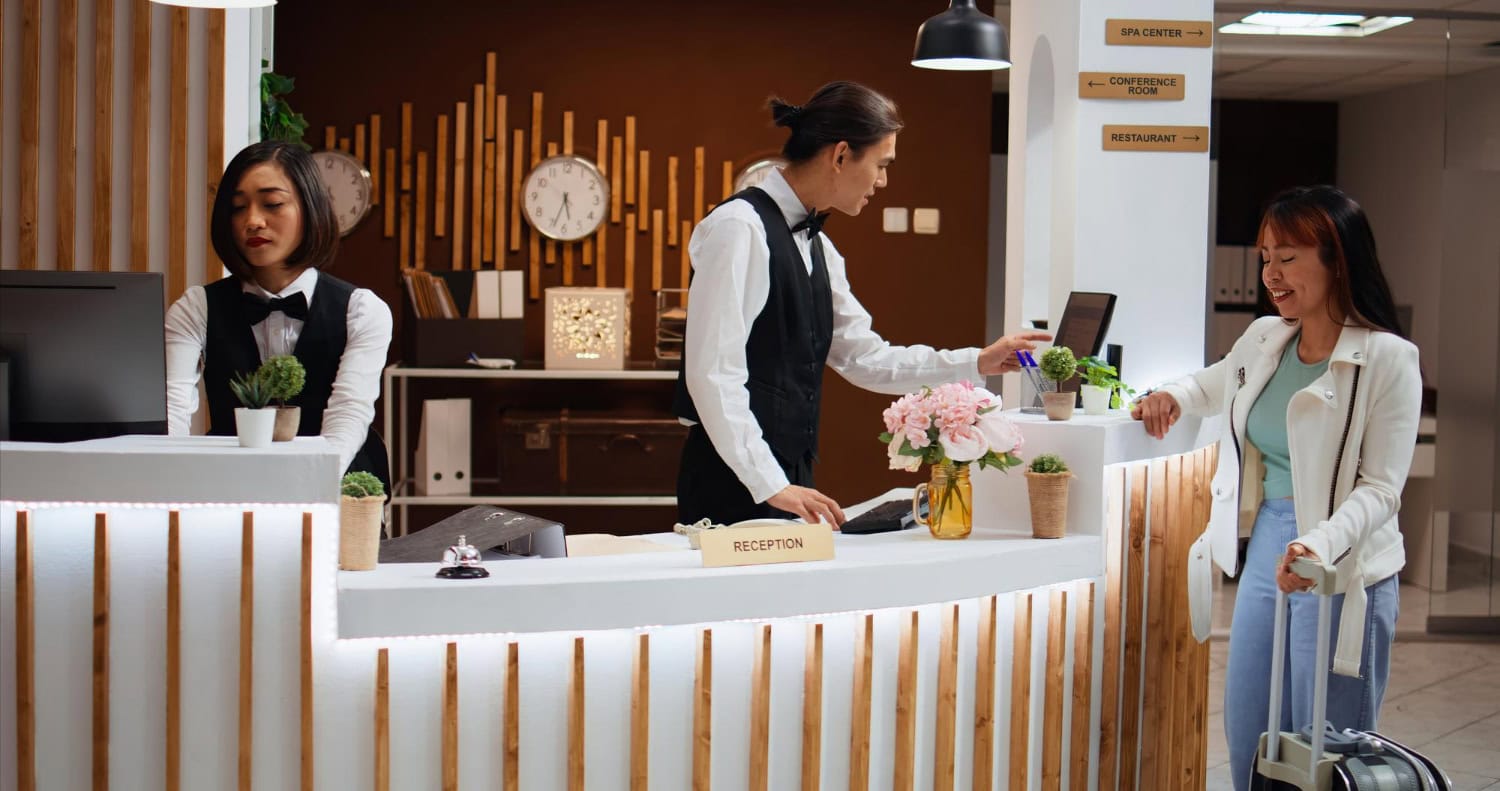The hospitality industry is rebounding as businesses reopen and travellers return. However, the sector still faces several hurdles, including staff shortages, sustainability pressures, and the need for advanced digital skills. Understanding these challenges and how to address them is crucial for small-to-medium-sized enterprises (SMEs) to stay competitive.
The Resurgence and Ongoing Challenges
Despite the sector’s recovery, it has not fully returned to pre-pandemic levels. Key challenges affecting hospitality businesses today include:
- Staff Shortages: The Australian hospitality industry is grappling with severe staff shortages. According to recent data, it was the most impacted sector in 2023. Issues like low wages, long hours, and limited career progression contribute to this problem. Addressing staff shortages involves exploring diverse talent pools and improving working conditions. Engaging mature workers and providing career advancement opportunities can help alleviate this challenge.
- Sustainability and Net-Zero Targets: Environmental pressures are pushing hospitality operators to adopt sustainable practices. Major hotel brands have set ambitious sustainability goals, which, while challenging, can lead to innovation and a competitive edge. Implementing green initiatives not only reduces your environmental footprint but also attracts eco-conscious customers. Research shows that 85% of Australian hospitality services believe sustainability can draw more customers.
- Digital Skills Gap: The hospitality sector is facing a significant digital skills gap. A study revealed that only one-third of staff have experience with digital technology. To stay competitive, businesses must invest in staff training or outsource digital tasks. Victoria offers free courses that can help upskill workers quickly. Additionally, if your business excels in digital technology, consider providing consultancy services to other SMEs in need.
- Inflation and Higher Commodity Prices: Inflation is impacting the hospitality industry by increasing operational costs. Balancing these rising costs with customer expectations requires strategies like streamlining operations, renegotiating supplier contracts, and exploring alternative revenue streams. Staying adaptable and proactive is essential to managing these economic pressures.
- Cybersecurity Risks: As digital technology becomes integral to hospitality, the risk of cybersecurity breaches grows. Recent data breaches have exposed customer information, highlighting the need for robust cybersecurity measures. Regular audits and updates to your security systems can protect guest data and prevent costly breaches. Additionally, consulting with insurance experts on cybersecurity coverage can bolster your risk management strategy.
- Personalisation and Technology: Personalisation is crucial for guest satisfaction in a competitive market. Advanced technologies like AI and machine learning enable businesses to offer tailored experiences, enhancing customer loyalty. Staying informed about technological advancements and incorporating them into your services can help you stand out.
- Direct Bookings vs. OTAs: The debate between direct bookings and Online Travel Agencies (OTAs) continues. While OTAs provide visibility, they come with high commission fees. Balancing the benefits of OTAs with direct booking strategies can help maximise profitability and strengthen customer relationships.
How Hospitality Insurance Can Help

Given these challenges, having the right hospitality insurance is essential for managing risks and ensuring business continuity. Hospitality insurance provides coverage for various risks, including property damage, liability claims, and business interruption. It also offers protection against specific industry-related risks, such as cyberattacks and staff shortages.
Key Steps for Success
- Address Staff Shortages: Explore diverse talent pools and enhance working conditions to attract and retain staff.
- Implement Sustainability Initiatives: Adopt eco-friendly practices to meet environmental goals and appeal to green-conscious customers.
- Invest in Digital Skills: Provide training or outsource digital tasks to bridge the technology gap and boost efficiency.
- Manage Inflation Impact: Streamline operations and explore new revenue streams to offset rising costs.
- Enhance Cybersecurity: Regularly update your security measures and consider cybersecurity insurance.
- Leverage Technology for Personalisation: Utilise AI and machine learning to tailor guest experiences and improve satisfaction.
- Balance Booking Strategies: Evaluate the benefits of OTAs versus direct bookings to optimise profitability.
Stay Ahead with Professional Advice
Navigating the hospitality industry’s complexities requires staying informed and proactive. By understanding and addressing these challenges, your business can thrive in the evolving landscape. Consulting with industry experts and leveraging appropriate hospitality insurance will help you manage risks and seize growth opportunities.
For more information on hospitality insurance and how it can protect your business, visit Pivotal Insurance Brokers and speak with our experts to tailor coverage to your specific needs.


